“Blow the trumpet at the new moon, at the full moon, on our feast day.
For it is a statute for Israel, An ordinance of the God of Jacob.”
Psalm 81:3-4
There are seven main holidays (appointed times) on the biblical calendar: Passover, First Fruits, the Feast of Weeks (Pentecost), Rosh HaShanah (The Feast of Trumpets), Yom Kippur (The Day of Atonement), and the Feast of Tabernacles (Lev. 23). The seventh appointed time, which is actually the first, is the Sabbath (Lev. 23:1-3). Of these seven appointed times, Rosh HaShanah is the briefest in its biblical description. It is described in only three verses in Leviticus 23 and the main focus in the text is to rest and blow the trumpet or shofar (Lev. 23:23-25). The Hebrew word for the blowing of the trumpet (shofar) is “teruah.”
“Rosh HaShanah” is a Hebrew phrase which literally means “the head of the year,” signifying the New Year. In Judaism there are four dates that are considered as “New Year” days and each is significant for different reasons:
- The First of Nisan – This is the biblical date for the beginning of the year regarding the Jewish Festivals, starting with Passover (Lev. 23:4). This date generally occurs in March or April.
- The First of Elul – This date marks the counting of years of life for animals, in connection to tithing and sacrifices (Num. 6:14-15). The entire month of Elul is also considered to be a time of contemplation, making things right with others, and finding God’s mercy. It is a time of serious reflection on the events of the past year in preparation for the New Year to come. The month of Elul generally falls in August or September.
- The First of Tishrei (Rosh HaShanah) – This date is traditionally believed to be the sixth and last day of creation when God created man (according to the Talmud). It is remembered as a day of creation but it is observed as a day of judgment. This date is connected to the end of the harvest season and the beginning of the new season (Ex. 34:22). In connection to Yom Kippur, it is also used to count the years for “the Shemitah,” the seventh year, which is the sabbatical year for the land to rest (Lev. 25). And finally, the First of Tishrei is considered as a Jewish New Year’s Day, in relation to the agricultural year and for determining the beginning and end of debts. The month of Tishrei generally falls in September or October.
- The 15th of Shevat – This date marks the day when the life of trees is counted. This is important in knowing when it is appropriate to pick and eat the fruit of a tree (Lev. 19:23-25). The month of Shevat generally falls in the month of February.
These four dates on the Hebrew calendar make up the four different dates of the Jewish New Year. The Feast of Trumpets (Rosh Hashanah) is the Jewish New Year used for counting years on the Hebrew calendar. This year, Friday evening, September 18th, 2020, will usher in the Jewish Year 5781.
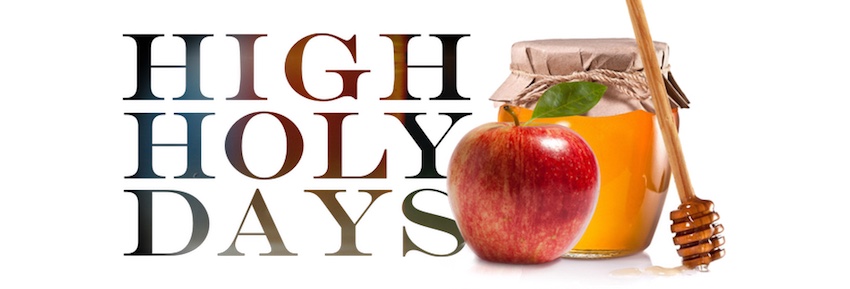
Although the first day of the Hebrew month Tishrei is not spoken of in an outright manner as a New Year (Rosh HaShanah) in the Bible, it is used as a date to mark the end and beginning of the agricultural year (Ex. 34:22). The actual biblical name for the first of Tishrei is “A Memorial of Blowing Trumpets” (Lev. 23:24). From this we derive the English name “The Feast of Trumpets.” Most Christians know this feast by the name, “The Feast of Trumpets,” whereas, most Jews know this feast as “Rosh HaShanah” which literally means “The Head of the Year” but is known colloquially as The Jewish New Year. Biblically, both names represent the feast in some manner, however, the day of the first of Tishrei is to be marked by rest (a ceasing from work), blowing of trumpets, and bringing offerings to the LORD (Lev. 23:23-25).
Why does God appoint one entire day of the year as a special Sabbath day for blowing trumpets?
The Significance of the Sound of the Trumpet
The blowing of the trumpet (or shofar) carries with it significant meaning in the Bible and we see this illustrated throughout the generations of the Israelites. God told the Israelites to use the trumpet sound to gather the people and send them to war. The trumpets were to be sounded at the appointed time of their feasts (Num. 10:1-10) and new moons. The blowing of trumpets was a reminder of God’s presence with the people during war and during days of joy. The blowing of the trumpet is also used to signify judgment and the coming of the LORD (Joel 2:1).
In keeping with the Old Testament understanding of the blowing of the trumpet we can better understand the purpose of the blowing of the trumpet in the New Testament. Yeshua stated that His coming would be with the sound of the “great trumpet” (Matt. 24:31). The coming of the Messiah and the gathering of the believers at the end of the age will be marked by the “last trumpet” (1 Corinthians 15:51-52). The last trumpet will mark the end of the current era and the beginning of the millennial reign of the Messiah (Revelation 11:15).
In the synagogue on the day of Rosh HaShannah, Psalm 47 is read seven times before the blowing of the shofar. Verse five of Psalm 47 reads as follows: “God has ascended with a shout (Literally: the sound of the blowing of the shofar), the LORD, with the sound of a trumpet (shofar).” The arrival and splendor of Almighty God are marked by the blowing of the shofar in the Scriptures. Could it be that Yeshua the Messiah will return on the day of Rosh HaShanah?
God always works according to His own timetable but just as it was no coincidence that Yeshua was crucified on the very day of Passover to atone for the sins of the world so it will not be arbitrary when He returns. Whenever Yeshua returns, we know that it will be marked with the sound of trumpets (shofars). Just as the LORD first revealed Himself to the Israelites when they came out of Egypt by the blowing of the shofar (Ex. 19:16-17), even so He will reveal Himself to the world at the blowing of the last shofar at the end of days (Rev. 11:15).
Traditions on Rosh HaShanah
This year Rosh HaShanah will begin on the evening of September 18th and will continue to be celebrated on September 19th and 20th. There are always two days of celebration for Rosh HaShanah in Israel and around the world. The reason for the two days of celebration is detailed in the following article: Third Day Chronology
On Rosh HaShanah, Jewish people around the world eat apples and honey. Apples and honey are symbols of sweetness and they offer a prophetic hope that God will be merciful towards His people and be favorable toward them in judgment.
The common expression on Rosh HaShanah is “L’shannah tovah tikatev v’tachatem” – “May you be inscribed and sealed for a good year!” The ten days following Rosh HaShanah are called “The Days of Awe,” which are intense days of repentance and forgiveness leading up to Yom Kippur when the final judgment is made.
As we celebrate Rosh Hashanah again this year, let us remember that the God of Abraham, Isaac, and Jacob is with us and that He will be faithful to all of His promises. The Messiah will return one day at the sound of the trumpet to reign as King of this world. In the last days He will come both to judge and to bring salvation. All of those who believe in Yeshua as the Messiah can rejoice that our names are already written in the Book of Life and sealed for good for all eternity.
- To learn more about the subject of the Biblical Calendar and its prophetic significance, we invite you to purchase and view our recent four-part series taught by Daniel Goldstein: Biblical Calendar
“Blessed are the people who know the trumpet sound (teruah) of the LORD, they will walk in the light of Your face.” – Psalm 89:15
Shannah Tova Umetuka! – Have a good and sweet year!
If you enjoyed reading this article, we invite you to sign up for our weekly Torah Portion commentary on the sidebar to the right.
Help keep our weekly commentaries free and available to all. Click here to donate today:
Copyright Jewels of Judaism. All rights reserved 2020

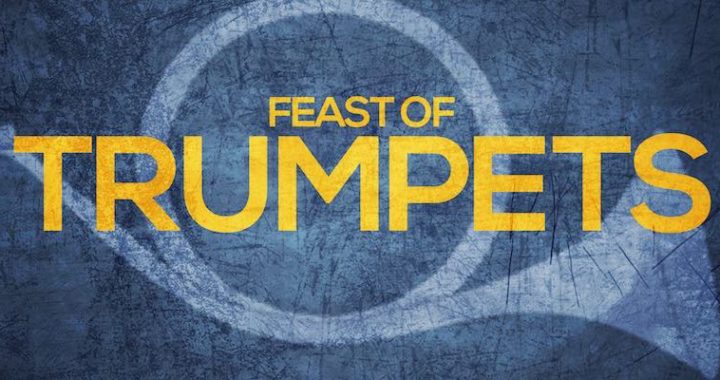
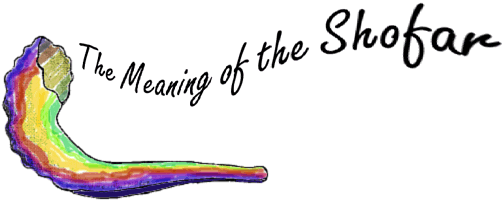
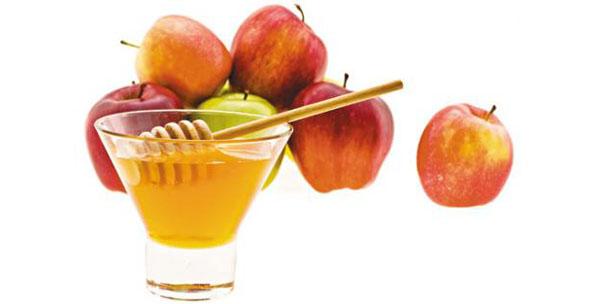
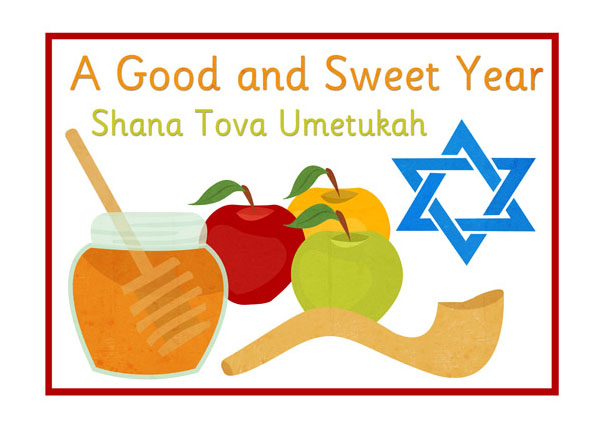

It’s a blessing believers are learning more about the Chritisn roots of your faith. The Hebrew indicates that what has been fashioned by rabbinical tradition as the Jewish new year is more properly the day of shouting, accompanied by blasts of trumpets — the same use of the word when used to describe how the Israelites shouted and brought down the walls of Jerico. Biblically however, the new year is the first day of the first month of the year, ten days before Passover. All Christians should study the Old Testament more than they do, and use the JPS translation to get closer to God’s word of you don’t really understand Hebrew. Perhaps your eyes will gradually open too see that Yehovah is God and there is no other — no stars in the heaven nothing that flew in the sky, swam in the sea or walked on the face earth. (Exodus). And that includes a man. May you all be blessed with open eyes and hearts and understand the real truth, way and life: that God wants all peoples to worship Him and only Him with no intermediary and no man. L’Shana Tova!
Dear Jim,
Thank you for your comments. As is documented in many Jewish Scriptures from the Torah, the prophets, and the writings HaShem (the Almighty God) clearly provides an intermediary to bring forth atonement for the Land and people of Israel as well as the nations. The New Covenant is also a firmly established agreement between HaShem and His people as prophesied in Jeremiah 31:30.
Blessings!
This site brought tears to my eyes today, as I am waiting for Yeshua to “catch us up” (1 Thessalonians 4:16-18). So many Jews still do not know who the Messiah is; I was full of joy when I read the name of Yeshua on your site! I had a dream of the rapture in the daytime on 2/7/10, and a vision of exactly the same thing the following morning, on 2/8/10, but I was going up through the clouds at night. Of course, when it happens, it will be night on one side of the earth, day on the other side. I, being astonish, went to my table to study the Bible, where I left off the day before, and started reading the next verse, Genesis 41:32, “Because the dream was doubled unto Pharaoh twice, it is because the thing is established by God and God will shortly bring it to pass.” My mouth fell open, and I said, “God, are you speaking to me?” I realized that “shortly” in Joseph’s day meant the famine would come in 7 years, so I immediately connected to 2017, or 777. This is my experience, so I have been hoping for this year, actually at Rosh HaShanah! No man knows the day or the hour, of course, but He never said we would not know the year! Historically, the rabbis had to wait for the sliver of the moon to declare the Feast of Trumpets, so it has always been the “mystery feast.” Come quickly, Jeshua! God bless you all!
at what time here in America, will they blow the trumpet for the first time for Rosh Hashanan
Thank you Daniel fr this wonderful explanation of the festivals. It is lovely to hear fro you again. I don’t know a lot about Jewish traditions, and your emails certainly bring this information to light. I pray that I am able to remember and be able to call upon it when it is necessary to explain Jewish things to my friends. Glad to hear you are settling into your new home. We have sold our property and are waiting to find one to replace it in Stanthorpe town. We may have to rent a house for a little while if nothing is available by the end of October. We have a wonderful son who isn’t really ours, who has offered to pay if we have to rent. He is very generous and we will try not to take advantage of his offer in the hopes that we will be able to find a house to buy. It is all very unsettling. I haven’t heard from Carolyn for a few days, and I hope she is well. I will contact her perhaps tomorrow to make sure. What a lovely lady she is. It is so nice to have a friend who is so special. Take care, Love in Jesus, Rose.